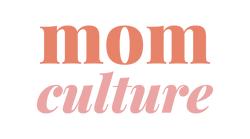Written by: Marissa Hunter, M. Ed, COTA/L
I practice occupational therapy as a certified occupational therapy assistant (also known as a COTA). I also attend occupational therapy school as an occupational therapy student. Eventually I will finish school to become an OTR (which literally stands for Occupational Therapist Registered, but is better known as “an OT”). I’m also a full-time MOM (no acronym there, just reading my credentials for being responsible for two dependents). This unique experience has given me a lot to reflect on.
Originally, I was only interested in sensory integration and a future with animal assisted intervention. One semester in, I was surprised to learn about the concept of occupational therapy injustice, the need for advocacy for the field, as well as community-based occupational therapy for specific populations. For me, there was a specific population that captured my attention.
What population?
Mothers. Mamas. Moms. Mums. Mommys.
You may be wondering where the jump was made from working on sensory integration, with adults and children who have difficulty integrating sensory experiences to wanting “justice” for mothers and to focus on Motherhood.
In my experience, people’s understanding of this field is based on personal experience; maybe they have a child that sees an OT to work on sensory processing as related to food aversions. Maybe an OT helped your grandparent recover from a total hip replacement. Or, people have had some experience in between.
So, what is OT? Occupational Therapy is defined as “the therapeutic use of everyday life activities (occupations) with individuals or groups for the purpose of enhancing or enabling participation in roles, habits, and routines in home, school, workplace, community and other settings” (AOTA, 2014).
Apply this to Motherhood:
Roles
Being a Mother or caretaker is a very important role; I think part of this may be because often times being a mother means filling several roles. A wife, a friend, a daughter, a sister, a professional, an animal lover, a traveler, you name it. Despite the obvious fact that not one of us are the same, I’m finding that the more moms I speak to in passing, the more I realize Motherhood is often a unifying factor that connects me to the stranger. I suddenly have an idea of the sleep deprivation she’s experiencing, or the anxiety about if others are judging her for how her child is having a meltdown in public, etc. I heard once of a mother’s 4 children melting down at Target and another Mom walked by, and saluted her with the Hunger Games salute… that couldn’t be more perfect.
I challenge you to take a second and list who you are. It may feel silly, or too simple to write this list, but I challenge you to reflect on what that means your worth is to each person in your life. If you really feel empowered, then I challenge you to figure out who costs too much mental/emotional energy and is NOT worth your value. I’m kicking myself because I can’t recall the source, but I saw somewhere recently that we should be valuing ourselves AND charging tax.
This may seem like a daunting task, because it may be easier to lay low and complain to a best friend via text (guilty!) and then go back to bending over backward for your brother, mother, sister, friend, co-worker and needy client/patient. But, take a look around, Mom Culture… our role must include taking care of ourselves to model to our kids and family the balance of taking care of others while remembering to take care of ourselves.
Habits refer to “specific, automatic behaviors; may be useful, dominating, or impoverished”. I literally created a habit out of eating an entire Hershey’s chocolate bar (with almonds) each time I walked into the kitchen and passed the drawer. At first it was a light hearted joke, but then, it actually became a habit. In reflection, I think I did this as a reward for getting up and just showing up to the kitchen to conquer whatever was waiting…dishes, cooking, bottle cleaning, bottle making, feeding the dog, etc. Grabbing a bite of chocolate became a habit, more specifically it was a habit that I “used in the process of engaging in occupations or activities that can support or hinder occupational performance”.
I’m definitely not shooting down anyone out there who relies on chocolate…or wine. I’m using it as a light-hearted example of how we, Moms, have habits- both good and bad (and maybe even silly). So, what kind of habits could we establish to promote our well-being? I get goofy joy out of a planner and special pens and stickers, but I’m guilty of not even taking time to review that daily. Sometimes there are days or weeks that go by without my planner. I do use my iCal- and I got in the habit of scheduling things for myself (hello, massage) in advance so that childcare can be addressed and I don’t have a chance to talk myself out of this. Feel free to add or modify this example to be as extravagant or minimalist as you’d like, just as long as you’re actively creating a habit that helps you balance yourself.
Routines are “established sequences of occupations or activities that provide a structure of daily live; routines also can promote or damage health”. It’s realistic and likely that we have routines that aren’t intentional for our own mental and spiritual or physical well-being. For example, it became a routine for me to sit in my driveway in the car for a few minutes preparing to tackle the bedtime routine right when I walk in the door from work. What about creating a routine that involves promoting a few minutes for you to mentally prepare for the day or unwind?
Ordinarily, OT is thought of as something like a PT (Physical Therapist) or someone who helps people find jobs (false). The interventions you may have seen or heard of are dependent on their settings. But what makes the field of OT unique and relevant for you Momma, is that within our scope of practice is the importance of addressing occupational injustice. It is within the scope of occupational therapy to see “Occupational Justice” which is defined as
Access to and the participation in the full range of meaningful and enriching occupations afforded to others including opportunities for social inclusion and the resources to participate in occupations to satisfy personal, health, and societal needs.
Translation: It doesn’t have to look like a problem that received a prescription or referral for you to take initiative to look out for yourself. There are a ton of amazing mom-preneurs and mom bloggers who will repeat the message that we must take care of ourselves in order to be able to take care of others. But I’m hoping that you read this, and realize that valuing yourself and your ability to fill so many roles, and taking the time to re-establish more healthy and self-centered habits and routines are all within the scope of occupational therapy and are all necessary to help you be the best resource for yourself to Raise Good Humans. Consider this your personal plan of care from your personal, virtual OT.
If you enjoyed the first Mom Culture podcast related to picky eaters and feel like you have more questions, I encourage you to reach out to a local pediatric OT in your area. There are also sensory-related factors that can be addressed to facilitate opportunity for successful self-feeding and eating opportunities!

The definitions come from the Occupational Therapy Practice framework.
American Occupational Therapy Association. (2014). Occupational therapy practice framework: domain and process (3rd ed.). American Journal of Occupational Therapy, 68 (Suppl. 1), S1-S48.


